Ernst Jünger's work on cyclical time, published 60 years ago, marks the apex of what was called the "culture of the crisis", a current of thought focused on becoming aware of the drama of History and Historicism and on the image of time as an impetuous flow that overwhelms everything: intuitions that, before Jünger, were brought to the surface by Oswald Spengler, René Guénon, Julius Evola and Mircea Eliade.
di Marco Maculotti
In the period between the first and second world wars, a current of thought developed in Europe that some scholars have called «culture of the crisis». The root idea that founded the emergence of such disenchanted conceptions was the realization that the founding structures of the traditional European world - weakened from century to century by Christianity, Renaissance, Enlightenment, industrialization, secularization and finally insane internal wars - they no longer existed except in the form of fleeting and now vacuous residues.
Such suggestions suggested a pessimistic view the flow of time, whose flow ended up being allegorically represented by the image of an impetuous current that overwhelms everything - kingdoms, civilizations and men. Thus an intellectual trend developed which, in firm opposition to the modern myths of "progress" and technology, stood as the last bastion of the traditional West against the entropic drift that had marked, step by step, the last two millennia of European civilization.

Reference text of this «crisis literatureWas the essential work of Oswald spengler The downfall of the evening (The sunset of the West, 1918). In it, as Giovanni Sessa writes in his essay The crisis and the "crisis literature" [p. 210], "la deprecatio temporis became the collective heritage of a generation of intellectuals who were aware of the inanity of progress and the implicit risks of technology". Among the many merits of Spengler was that of investigating the different conception of time in traditional and modern peoples; in his opinion [The sunset of the West, p. 22]:
« [T] he ancient civilization did not have one the memory, a historic organ in this special sense. The "memory" of ancient man […] was quite different, because it lacked the past and the future as coordinates of the awakened consciousness; the "pure present", so often admired by Goethe in all manifestations of classical life, especially in the plastic arts, he penetrated it with a power unknown to us. This pure present, whose greatest symbol is the Doric column, actually represents a denial of time (of management). For Herodotus and Sophocles, as for Themistocles and a Roman consul, the past vanished immediately in the calm and timeless feeling of a structure, of a structure not periodic, but polar, precisely this being the ultimate meaning of any spiritualized mythization; while in our feeling of the world and for our inner eye it is an organism of centuries or millennia articulated in very distinct periods and ordered to an end. Now, it is precisely this different background that gives life, classical and modern Western life its special color. What the Greek called Cosmos, it was the image of a world that does not becomes, but è. »
These intuitions of Spengler were later developed by the traditionalist current, especially by Ernst Junger (At the wall of time), René Guénon (The crisis of the modern world; The reign of quantity and the signs of the times), Julius Evola (Revolt against the modern world) to Mircea eliade, of which the ontological polarization between sacred time (theillud tempus origins) and the profane time of modern man and anti-traditional societies.
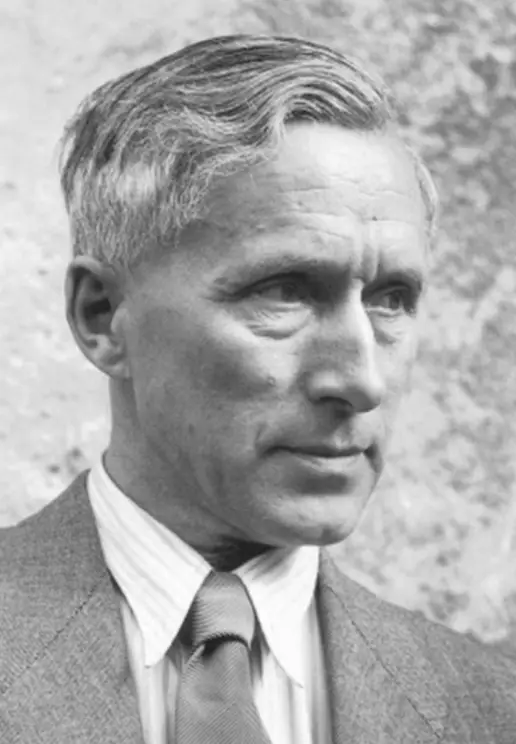
Ernst Junger and the modern man "at the wall of time"
One of the authors who drew heavily from Spengler to tackle the question of history was - as mentioned - Ernst Junger, who dealt with the subject in his work An der Zeitmauer (At the wall of time) published in 1959. His analysis also aims to underline the profound difference between the modern and the ancient world in dealing with the question of history: the divergence between the ancient historiographic tradition, of which Herodotus was the father, and the modern one; the increasingly dramatic phenomenon of the cd. "acceleration of the current of time"; and finally the cd. "safeguarding of history", A peculiar characteristic of modern man, or rather of themodern western man.
Drawing from the threads of the discourse of classical historiography, Jünger affirms that the writings of Herodotus allow us "a journey through a country flooded with auroral light". The author identifies in the work of the Greek historian a watershed between two conceptions of the world [§46]:
“Before him there was something different, there was la night of the myth. This night was not, however, darkness, but rather dream, and the connection it knew between men and events was different from historical consciousness and its separating force. From here comes the auroral light that illuminates the work of Herodotus. He stands as if on the crest of a mountain that separates night and day: not just two times, but two ways of time, two types of light »
Further on he writes [§48]: «From the space of history, into which he had just entered, Herodotus turned his gaze back towards the space of myth. He did it with respect. The same respect is necessary today where, beyond the wall of time, future events are looming ». The historiographical method of Herodotus, therefore, is considered by Jünger not only still valid, but even necessary in view of the transformations that await beyond the wall of time: it should in fact be noted that, for the Central European philosopher, present man is at the intersection of two historical cycles (what the Hindu tradition calls pralaya, twilight of the Yuga), whose watershed is represented by the Jüngerian concept of «Wall of time».
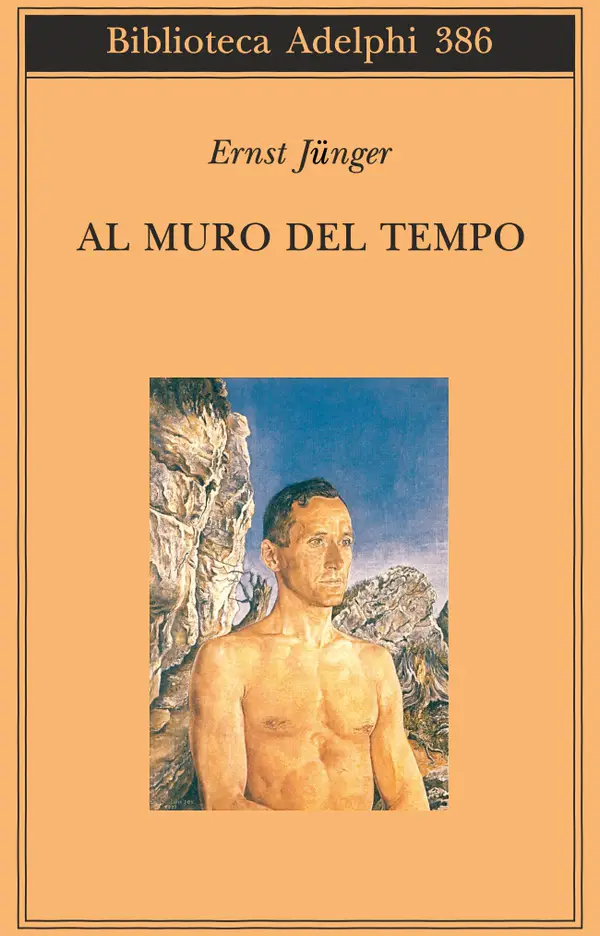
However, modern historiography appears to Jünger far from the Herodotian ideal, which was unsuccessful in the face of "tide of images that overwhelms us»[§47]. Already here we find the image of modernity or of the modern world as a current that invests everything and submerges everything. The decline of the historiographical discipline is, according to our opinion, mainly due to the fact that even words that constituted the «inalienable fund of historical action and contracts» (words like "war", "peace", "people", "state", "family", "freedom", "right") they began to become deceptive, as a consequence of the increasingly accelerated "collapse of borders» (understood by Jünger not only in the mere geographical-territorial sense, but also ontological). In this confusion "worthy of Babylon»Historiography loses its bearings, being forced to borrow now from politics, now from mythology, now from psychology and morality [§47].
Among modern historians, however, Jünger has words of respect for Oswald Spengler and his own «organic image of history», in which [§36]:
« Civilizations are described as towering trees; life follows, from the unconscious seed to the awareness of maturity and death, preceded by slow decay […] Universal history is thus reduced to a series of entrances on the scene that follow one another according to an inexplicable chance and without intimate correlation. The connective element lies in the periodicity of the courses and in their morphological similarity that a physiognomic gaze is able to grasp. "
"This consider things from the point of view of the staff - as Rimbotti rightly writes in his writing The European resurrection —, of the vital, of the biological ancestral it is perhaps the dimension that best unites Jünger and Spengler and which best explains their terrible, seductive, enchanting talent as fresco painters. Both analysts of man and society, both evocators of cosmological scenarios, of apocalyptic upheavals, of the hypothesis of reaffirmation of elementary and original "types", of mutant races, of archaisms lying in the unconscious and reactivated by the use of technique and impersonal will, all to be directed - with a strong political sense - against the shapeless bundling of the Modern ».
In Jünger's opinion, among Spengler's merits was that of «having freed a generation from prejudice of uniqueness and extraordinariness of its appearance in history, of its historical condition, of having freed it from that idea of "Never existed before", connected, in particular, to the development of technology and its surprising phenomena "[§39]. In other words, in our opinion, Spengler was the first historian of the modern era to scoff at the "myth of progress" on which positivism and everything derives from it, from scientism to materialism, from mechanism to atheization of masses. If ever modern civilization were to be distinguished by something, Spengler seems to tell us, this something can only be the degenerative, chaotic, dissolutive factor.
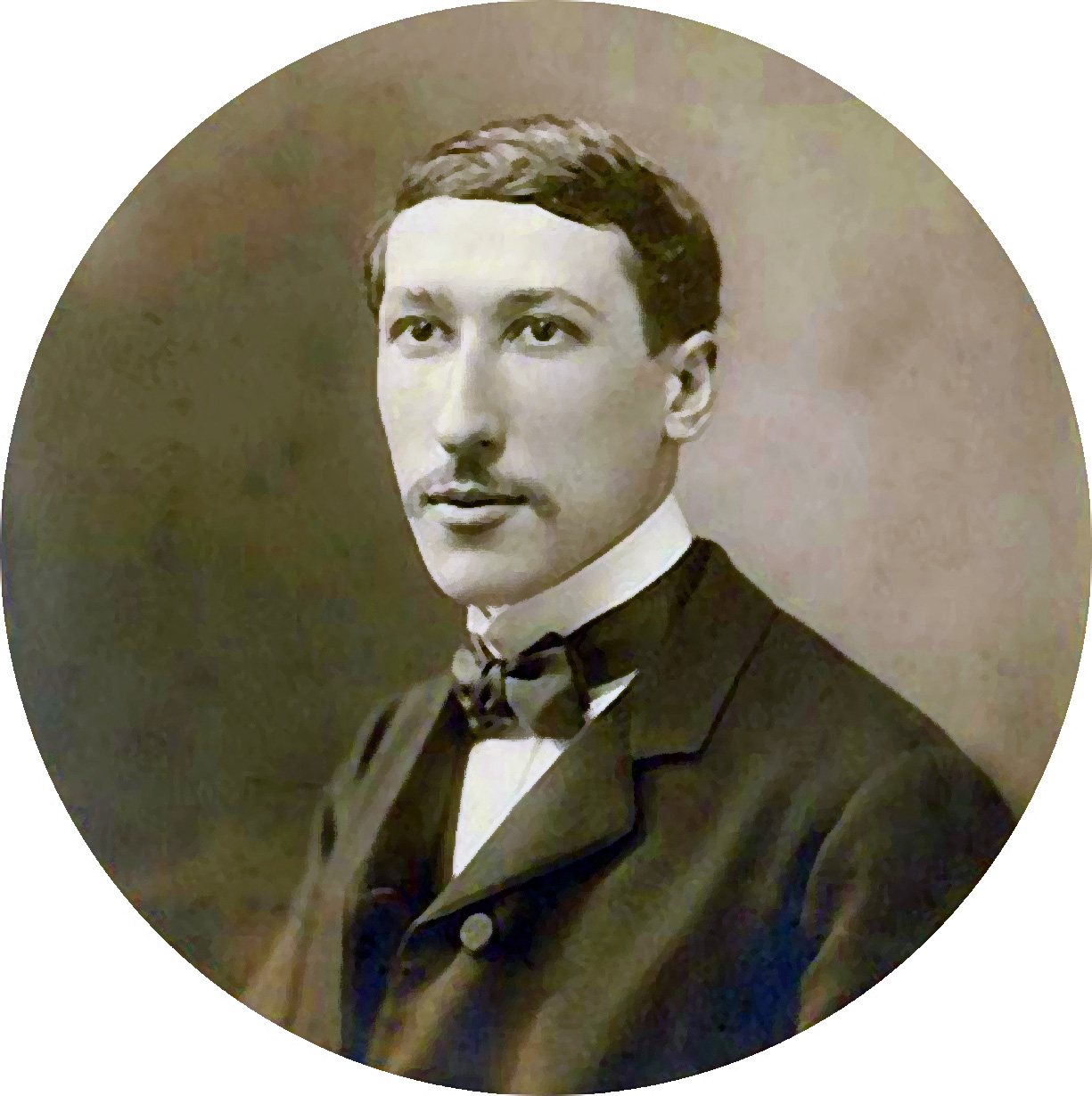
The acceleration of the current of time
And here we come to the image, already mentioned, that we have defined «acceleration of the current of time». The image of history as Spengler conceived it, in fact, foresees an unbridled acceleration and an accumulation of facts following the First World War, "to such an extent that the current of time and events sometimes take on the appearance of a waterfall which threatens to drag ships with it rather than support them"[Jünger, At the wall of time, §40].
This conception of the "acceleration of time" in the modern world, also mentioned by the most famous traditionalists of the twentieth century, derives from the realization that humanity is, in the present historical moment, in what the Hindu tradition defines kali yuga, equivalent to the Iron Age Hesiod, the "dark" age and the shortest duration (the overall duration of the kali yuga is equivalent to 1/4 of that of satya yuga, or the golden age, the first Yuga as well as the largest of the four). According to Indian tradition, this is due to the fact that time moves in one downward spiral that shrinks more and more towards the point of the maximum nadir, in which time "turns upside down" and the ages begin anew. From this, therefore, the phenomenon of the acceleration of time would derive, a time that finally arrives, in the abysses of the "dark age", to assume the image of an impetuous current charged with carrying away, at the end of the cycle, all the residues of the previous eras, waiting for the "overturning»Final and the beginning of a new golden age.
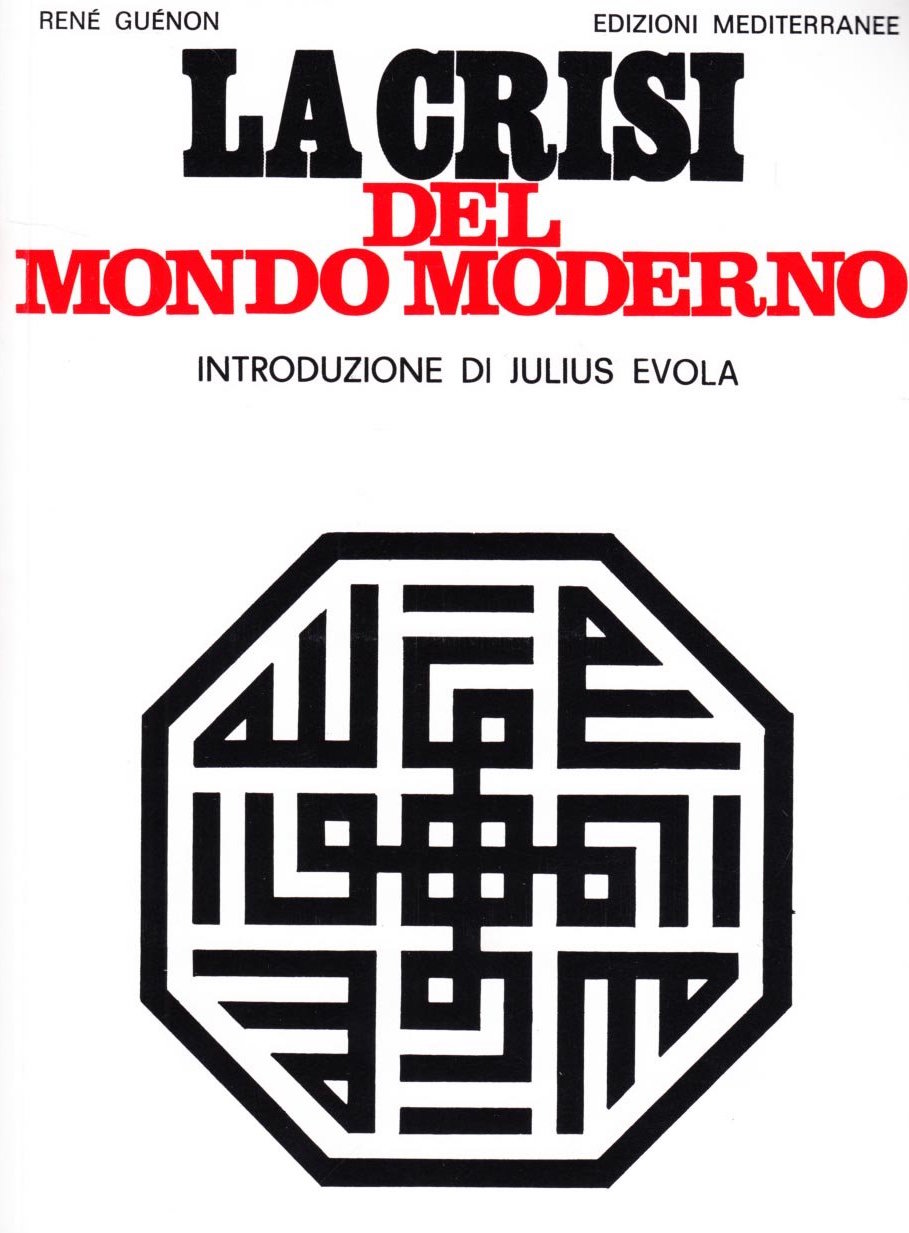
In his fundamental work for the study of this "crisis literature", The crisis of the modern world (1927) René Guénon expressed this Indian belief in the following words [p. 52]:
"[C] i will doubtless wonder why cyclical development must take place in such a descending sense, from the superior to the inferior, which, as it will be easily detected, is the very negation of the idea of" progress "as the moderns understand it. The fact is that the development of any manifestation necessarily implies an ever greater departure from the principle from which it proceeds. Starting from the highest point, it necessarily tends towards the bottom and, like heavy bodies, tends towards it with ever increasing speeduntil it finds a stop. This fall could be characterized as one progressive materialization, the principle having its expression in a pure spirituality [...] "
Ne The reign of quantity and the signs of the tempsi, the French esotericist adds that the illusion of security that reigned for a short time, when materialism had reached its maximum influence, is destined to dissipate like snow in the sun within a few decades, "thanks to the same events and of the increasing speed with which the latter evolve, to the point that the predominant impression today is, on the contrary, that of an instability that is spreading in all fields"[P. 200].
It follows that, in the final analysis, once the illusions which at first dazzled like a mirage were set aside, the only goal of this "mad rush of the modern world" can only be the dissolution of the world as we know it; not to mention the anguish resulting from the fact that, despite being aware that a world he is dying, further unease comes from not knowing yet what humanity awaits beyond the wall of time. And yet, the most serious risk is another: that this ontological change of the world, by virtue of the now irremediable loss of a traditional conception - as he states Julius evola [Revolt against the modern world, p. 432] - "is not even perceived as a sense of capitulation", to the point that the "final collapse may not even have the characteristics of a tragedy".
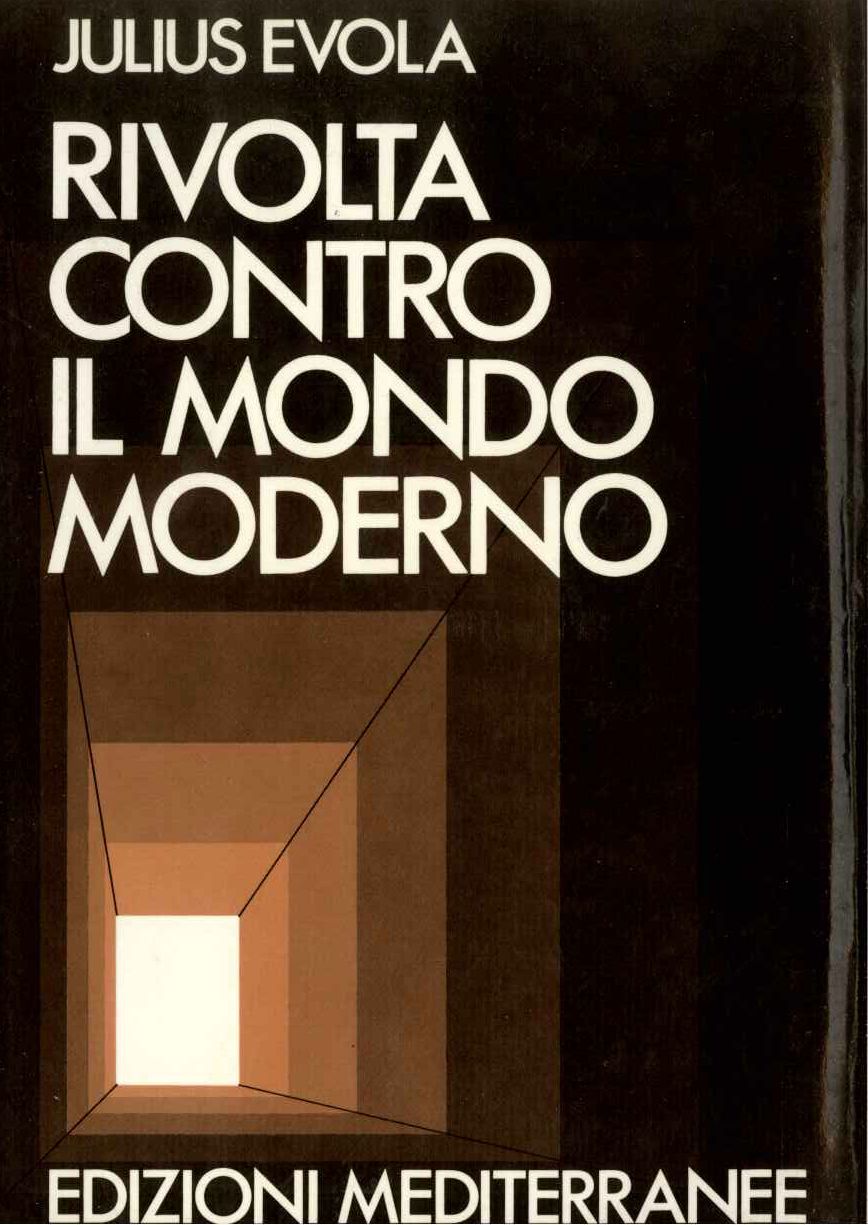
Safeguard and rediscovery of history
And here we connect to another great theme of Jünger's work, namely the importance of the cd. "Safeguarding history", defined by the philosopher as "safeguarding its historical structure against the onslaught of mythical powers and their return», One of the key themes of Western civilization [At the wall of time, §49]. In the author's opinion, this struggle, and not the external wars between nations and economic forms, must be taken into account in order to grasp the essential aspect of today's world [§48].
Analyzing these themes, Jünger affirms that history should not be treated as "the history of states or wars or civilizations", this being of secondary importance; the essential would be, rather, "the safeguarding of a nomos peculiar, of a "being-so" that finds confirmation in civilization and defense in battle»[§49]. The golden thread that runs through the entire cycle of becoming, passing through states, wars and civilizations is, in other words, "the dignity of the historical man who tries to assert himself on the one hand against the violence of nature and the barbarian peoples, on the other against the return of mythical and magical powers. This dignity is something peculiar: conscience, freedom, law, personality reach a particular interpenetration in it, that is, they radiate from it as from an original phenomenon "[§49].
The need to safeguard history is linked to the observation that modern man is «the first living being who has undertaken excavations and unearthing works, driven by the anxiety to know his own zoological, prehistoric and historical origins. Not only does man create a layer, but he permeates it with spirit. This confers a special light on that layer of the earth that belongs to it, and perhaps also to its entire planet "[§118]. In this "spirit" the influence of the so-called uranic powers must be identified "Powers of consciousness", represented by light as well as the powers of Chaos (the "mythical powers") are connected to the darkness of indifferentiation.
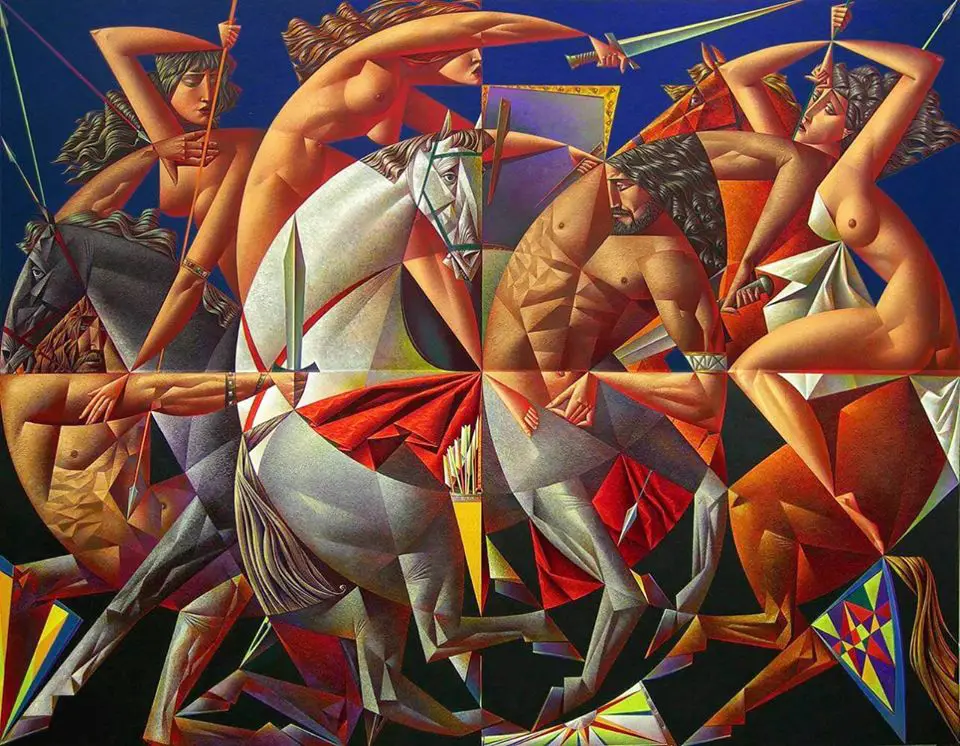
Jünger sees in the rediscovery of rock works of art, and in the consequent backdating of man as a being endowed with a conscience, the most evident sign that we are, chronologically speaking, at a breaking point [§56]:
“The fact that these works speak to us as 'modern' images is no coincidence. Just as it is not by chance that they have been discovered today, even though they have already been accessible for millennia. However, a short time ago, when they were discovered, their authenticity was questioned - that is, we didn't have eyes to see them. The question "because right now " it is highly informative. And it leads us to the breaking point. Here, starting from the margin known to us, we could perhaps say that our historical being has today reached the extreme degree of tension, of that daring passion, and at the same time aware, that pushes us at the limits of time and space, in the caves, in the tombs, in the bowels of the earth and in the caves of the sea depths, towards the top e in the depths of the cosmos. »
Spengler also spoke of this "rediscovery of history" The sunset of the West, identifying it as a peculiar sign of the "modern Western spirit", of which in his opinion Francesco Petrarch represented a precursor [p. 29]:
«[G] ià Petrarch collected antiquities, coins, manuscripts, with one feet and a fervor peculiar only to our civilization, like a man of historical sensitivity capable of looking back on distant worlds and thirsty for distances (he was also the first to undertake the climb of a peak of the Alps) who, after all, remained a stranger in his time. "
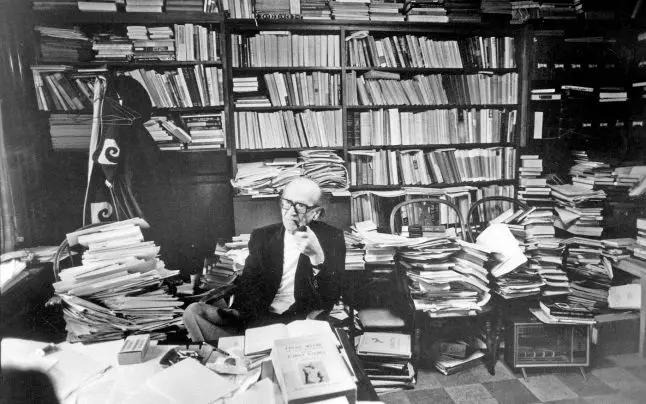
Also the already mentioned Mircea eliade he dealt with the question, peculiar to the modern Western world, of the "rediscovery of history", or rather of the sudden and unavoidable desire to catalog dates and peculiar characteristics of the civilizations of the whole planet, through the most disparate historical, archaeological or anthropological apparatuses. According to the Romanian historian of religions [Fragmentary, pp. 100-101]:
“The European consciousness records and films for itself all that it once was, everything it has experienced, everything that has given meaning to existence. It could be argued that, just as in the last moments of life an individual relives the whole existence, in the smallest and most insignificant details, like this Europe today, in its terrible agony, reviews all the stages of historical existence of man, from the earliest times to the present »
The anguish that makes Eliade shudder is the same that assails Spengler and Jünger: the awareness that a whole world is about to collapse on itself, and the anxiety of not knowing what will follow. The Romanian scholar continues: "The modern world is going through the final moment of a cycle [...] Having reached this end of the cycle, European consciousness relives universal history as in a mental film ". The historiographical consciousness of contemporary European man would thus be configured as "the supreme instant that precedes and announces death».
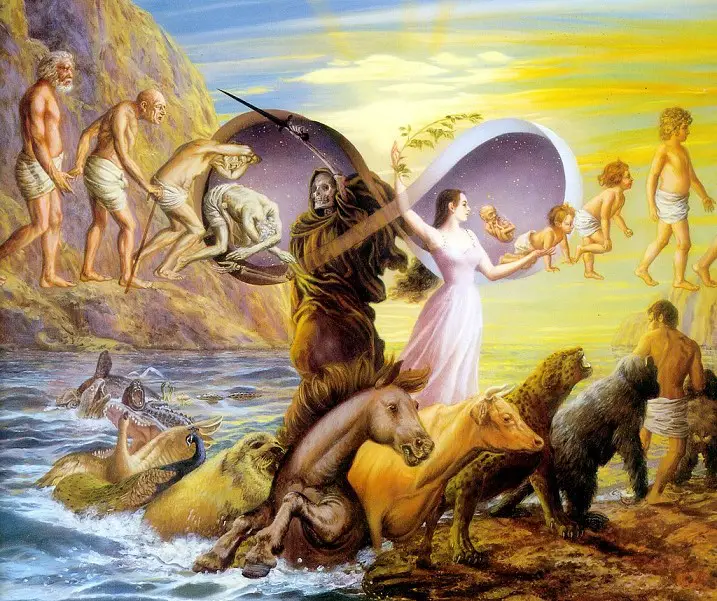
"Terror of history" and "exit from history"
Examining the question from a different perspective, we could say with Eliade that the anguish of modern Western man is closely connected "to the awareness of its historicity", that "in turn, it lets the anxiety in the face of death and nothingness shine through» - the absolutization of historicity by leading man to identify himself completely with becoming, forever deprived of any superior hold; moreover, themes already recurring, as the Romanian scholar notes, in the Hindu tradition and precisely in the equation «History / Divine = Maya / Illusion = Anguish / Terror». Huh Religious symbolism and the valorization of anguish Eliade writes [p.63]:
« We are distressed because we have just found out that we are, not deadly in the abstract sense of the syllogism, but dying, on the verge of dying, as relentlessly devoured by time. »
This must be read in conjunction with what he stated elsewhere [The sacred and the profane, p. 71]:
« Il Cyclic time becomes terrifying when it ceases to be a means to get to reintegration of a primordial situation, and to rediscover the mysterious presence of the gods: it's like a circle closed in on itself, that repeats itself indefinitely »
Similarly, Jünger [At the wall of time, §51] manifests his own atavistic anguish when he writes that we are "in the nocturnal heart of history; midnight has struck and our gaze reaches into a darkness in which future things are outlined", And with them fears and gloomy presentiments, since"the things we see, or think we see, still lack a name". However, according to ours, we must not fall victim to despair; the means to get out of the "dark age" are available to humanity, or at least to the individual. Already in Treaty of the Rebel (1951), he wrote [§17]:
« The man who manages to penetrate into the dungeons of being, even if only for a fleeting instant, will acquire security: the temporal order will not only lose its threatening aspect, but it will appear endowed with meaning. »
It goes without saying that this 'type' of man must necessarily be a "new man" or, as Jünger defines him, «last man»: that is to say, the last human typology of an uninterrupted scale that crosses centuries and historical and social changes, and which ours compares toNietzschean superman. Likewise, according to Massimo Cacciari, who defines it "posthumous man», [Cit. in Sessa, p. 214] "it is not only man who survives the end of the Subject [but] is also the man who starts listening toAbgrund (Abyss)», That is, which is confronted with the tragic dimension. It is the same idea that is found in it At the wall of time by Jünger, where he speaks of the need for one 'descent' in the «original fund» in view of the new world to come.
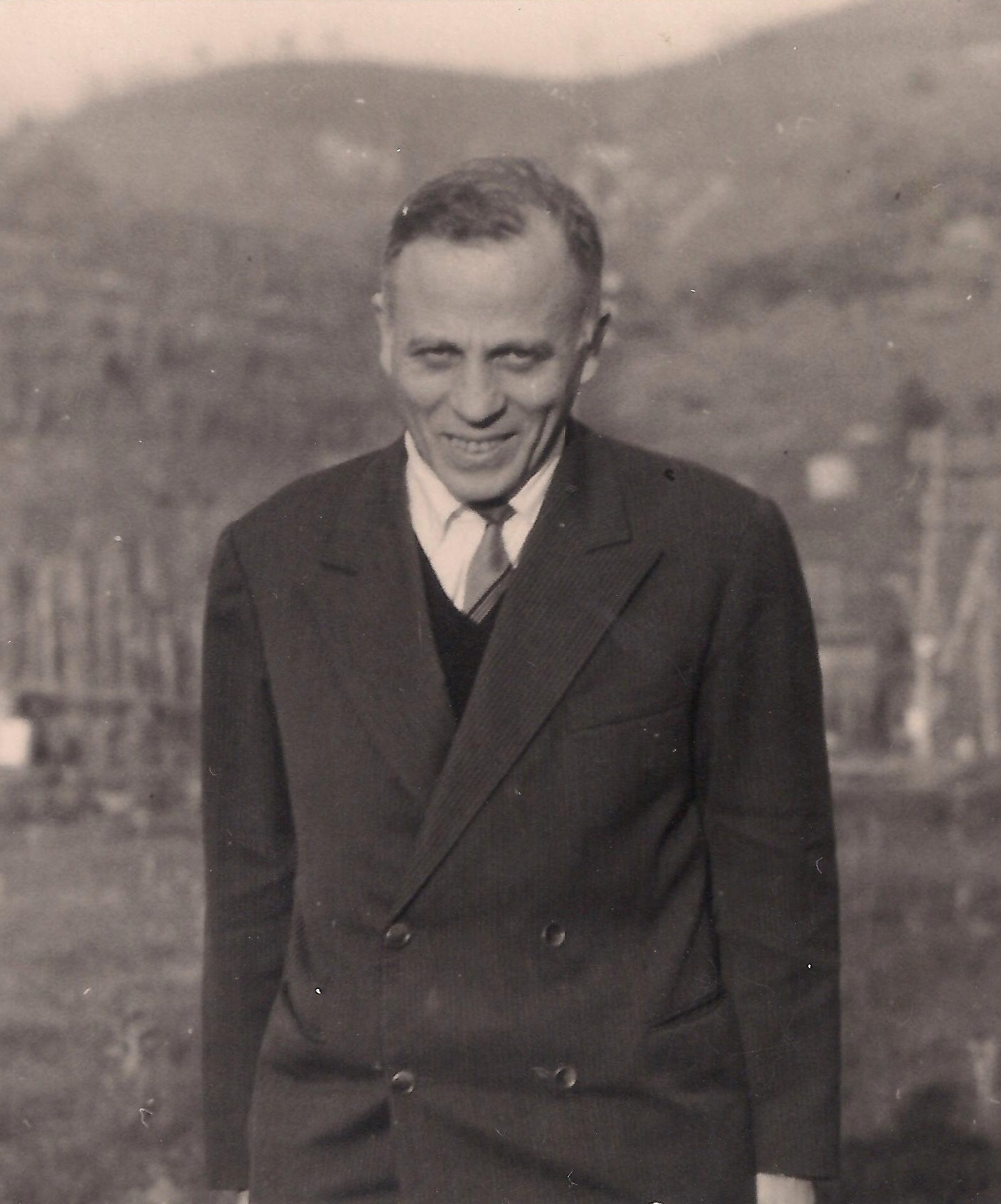
This image evokes that of the «descent to the underworld», also proposed by Ernesto DeMartino [The end of the world, p.XV]. The basic concept is the following: without the perspective of one reintegration, a "New Start" is not possible. Hence the need for what we could call one «immersion in the Abyss», a catabasis that the "last man" must know how to perform in order to be reborn in an ontologically different world, whose coming seems really just around the corner.
In this sense, we can frame all the key themes that we have dealt with in this essay (importance of historiography also and above all in the "mythical" sense, terror / anguish of history, acceleration of the current of time, rediscovery and safeguarding of history) in a much more extensive framework, which indeed embraces history understood as a succession of epochs and changes, but is above all focused onMan intended primarily as "object of history", However, to which, by means of the now mandatory" immersion in the Abyss ", is recognized the opportunity to finally become a Subject, leaving behind all those debris and residues that the river of time has dragged with it to this point-of-no-return.
The eliadian conception, on the other hand, does not stray too far from that of De Martino: in fact he too sees in crisis of modern Europe one initiation test, of which it is necessary to become aware and face it to the fullest of one's faculties. So Eliade writes in the essay Religious symbolism and the valorization of anguish [p. 47]:
« [I] The modern world is like a man swallowed by a monster and struggles in the darkness of his belly; as if he got lost in the bush or if he got lost in a labyrinth that symbolizes the underworld; and he is distressed, he thinks he is already dead or on the verge of dying and sees no other exit around him than darkness, death and nothingness. And yet, in the eyes of the primitive, this terrible experience of anguish is indispensable to the birth of a new man. No initiation is possible without ritual agony, death and resurrection. Judged from the perspective of primitive religions, the anguish of the modern world is the sign of imminent death, but of a death necessary and saving because it will be followed by a resurrection and will make it possible access to a new way of being, that of maturity and responsibility. "
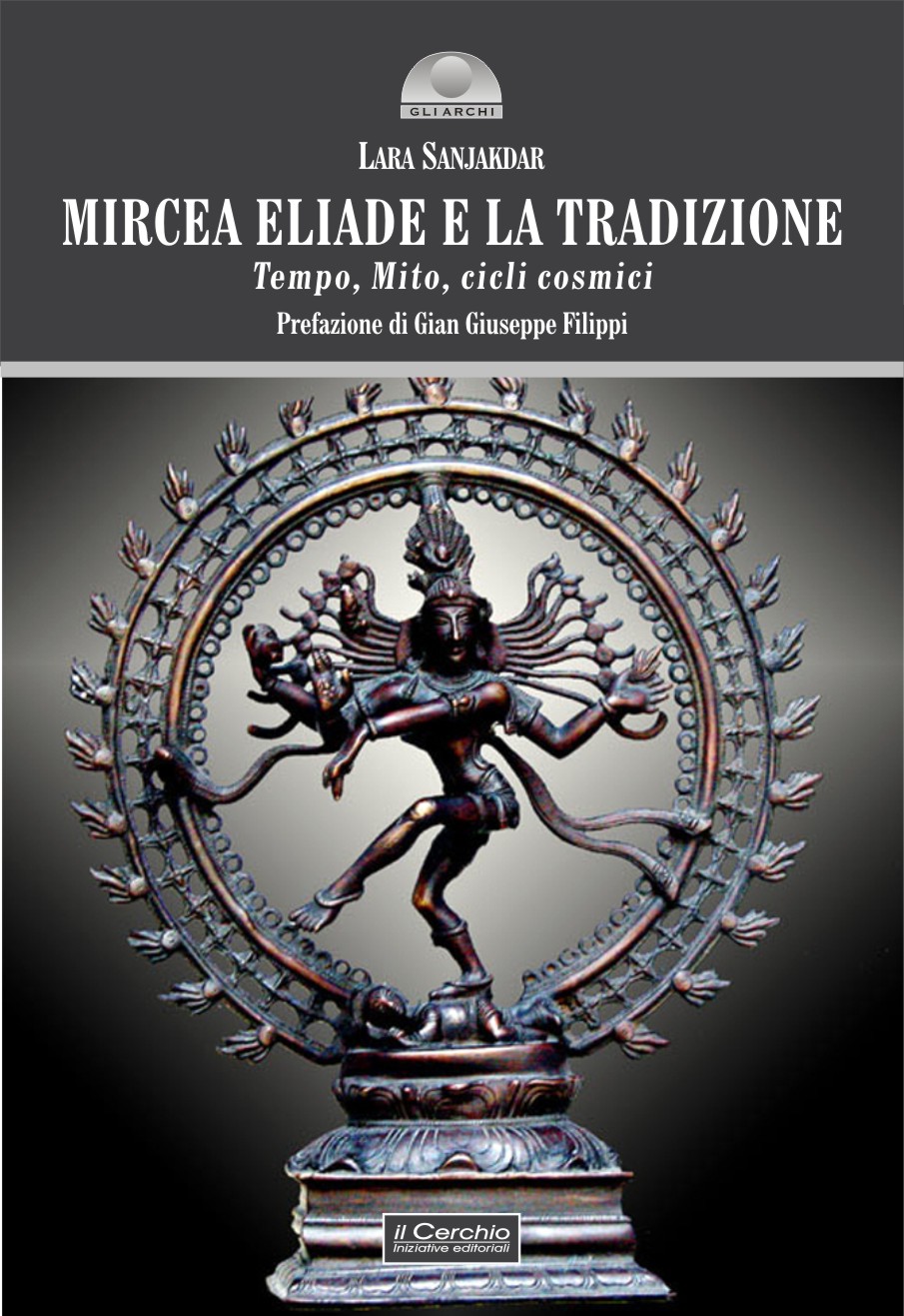
So how to escape from this impassment? According to the Romanian historian of religions, the individual can make his own «exit from history» solo passing "the temporal and, consequently, psychological conditioning of this "magic" [o Maya, ed] unreal», As he summarizes Lara Sanjakdar in his monograph Mircea Eliade and the Tradition [p. 228]:
« The ascetic, moved by a genuine one metaphysical tension, nostalgia for the origins, realizes the transit from the unlimited and illusory series of limits of the sensitive world to the eternal present of the manifestation in thePrimordial unity of which the duration is a simple reflection. But this "level break" that occurs at an advanced state of Yoga techniques is preceded by a phase of "Cosmization" which therefore provides a sort of identification and profound understanding of the forms of the "cosmic circuit" or, in other words, of the indefinite cycle of births and deaths. "
By doing so, e just like that, man to the wall of time can overcome the "terror of history": not by trying to counter the rushing current of time and eras, but by making one katabasis in the dark recesses of one's humanity, in order to discern that purely human dimension that is never affected by the passage of time and historical changes, and which ultimately represents the true alchemical gold which is hidden in depth of the abyss of human consciousness.
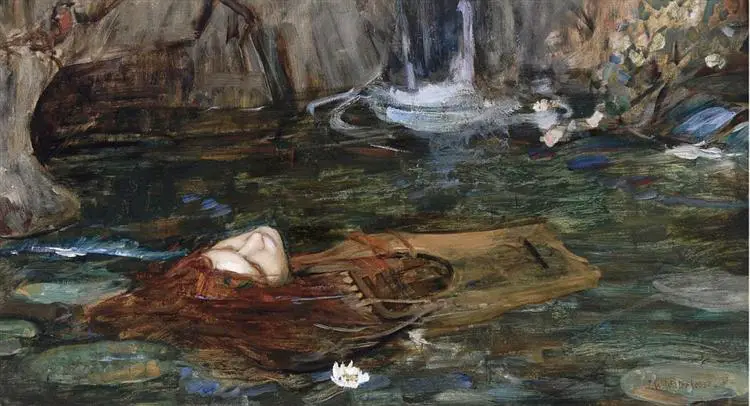
Bibliography:
Ernesto DeMARTINO, The end of the world (Einaudi, Turin, 2002).
René GUENON, The crisis of the modern world (Mediterranee, Rome, 2008).
René GUENON, The reign of quantity and the signs of the times (Traditional Studies, Turin, 1969).
Ernst JÜNGER, At the wall of time (Adelphi, Milan, 2012).
Ernst JÜNGER, Treaty of the Rebel (Adelphi, Milan, 2016).
Mircea ELIADE, Fragmentary (Jaca Book, Milan, 2008).
Mircea ELIADE, The sacred and the profane (Bollati Boringhieri, Turin, 2013).
Mircea ELIADE, "Religious symbolism and the enhancement of anguish "in Myths, dreams and mysteries [Rusconi, Milan, 1990].
Julius EVOLA, Revolt against the modern world (Mediterranee, Rome, 1982).
Luca Leonello RIMBOTTI, "The European resurrection " (Centro Studi La Runa, 29 October 2009), taken from No crew of 11 October 2009 and available online at http://www.centrostudilaruna.it/la-resurrezione-europea.html.
Lara SANJAKDAR, Mircea Eliade and the Tradition. Time, Myth, cosmic cycles (The Circle, Rimini, 2013).
Giovanni SESSA, "The crisis and the "crisis literature" ", in René Guénon, The crisis of the modern world (Mediterranee, Rome, 2015).
Oswald SPENGLER, The sunset of the West. Outlines of a morphology of world history (Ugo Guanda, Parma, 1999).

9 comments on ““At the wall of time”: the question of history and the crisis of the modern world"